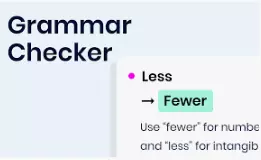Technical writing simply involves simplification of difficult technical ideas for users to comprehend them easily. This simplification of ideas is mostly in scientific and technical niches. If there is any complex information, a writer demystifies it for readers to understand.
Today, technical writing is common in preparation of manuals, instruction of operating machines and description of electric products. If there are any scientific terms, a technical writer can clarify them for the consumers to understand.
For instance, if there is a technology concept, the writer will prepare a simpler documentation that explains every detail.
Unlike essay writing that condones use of flowery words, technical writing is different. The write ups are not only precise, but strictly focus on the subject at hand. Needless to say, the explanation in technical writing is in a convincing order.
It involves the use of a straightforward presentation with concise data. The double explanations of one point that characterizes essays cannot be found in a technical writing piece.
Features of Technical Writing
Many people confuse technical writing to revolve around technical terms. There are strict characteristics that a good technical writer ought to possess in order to be successful in this field. Robotics, educational textbooks on physics, chemistry and different software use this type of writing. Below are some of the features of technical writing:
1. Precision and Clearness
Here, a reader’s needs and background is important. This is what a technical writer needs to understand before starting any assignment. In technical writing, the audience of the paper understands the communication of the writer.
To go into detail, a technical writer can easily give a solution to the problem because he already understands the audience.
Technical writing does not involve unnecessary words or codes. There is lucidity of the expression of ideas as well as simplicity of language. Precision and clarity is very important in making texts easier to understand.
2. Clear Format of Technical Data
Presentation of technical data is important in this type of writing. Technical data must be presented in a creative manner so that the user or reader does not get wrong interpretation.

For instance, instructional manuals can follow the pattern of bullets and not subheadings.
Yet on the face of it, if the instructions for readers are very important, the use of number list will apply.
Presentation of technical data is put in subheadings. The format of bullets suits presentation of important points involving warnings or precautions.
In this way, users can easily read the data they are looking for. If there are products that need technical specifications, the data can be put in a tabular format.
Further clarification of the technical data can be done through the use of graphic images of the product. All these presentation of information can definitely capture even the most casual viewer.
3. Accuracy
Technical documents can bring a lot of confusion to readers when there is no accuracy. A small misinformation is enough to cause grave repercussions.
What’s more, effective delivery of data needs the writer to use language that is readable and precise. A technical writer knows the intended audience and therefore will be in a position to translate information correctly.
4. Descriptiveness
Technical writing is applicable in manuals that are used for digital devices such as cameras and radios. The presentation of the language is put in a way that customers can comprehend easily.
Technical writing is descriptive enough to explain the important concepts involved in the operation of the products. The use of bad language will only confuse the customer. The explanation should be put in a layman’s language and the message conveyed in a precise manner.
5. Correct Grammar

Just like any other type of writing, technical writing needs correct grammatical structure.
Technical documents need a language that is free from mistakes and complicated words.
The use of ambiguous phrases can completely alter a message.
In simple terms, technical information should be in the correct sentence structure and free from spelling errors.
How to Become a Technical Writer Without Experience
Becoming a technical writer is not easy especially if you do not have experience. Skills are necessary and there are fundamentals you need to have. The following is a reliable roadmap that can help you achieve your dream of becoming a technical writer:
1. Education and Training
An academic background will be necessary in order to start your journey in this career. You can join a college to pursue a degree in technical fields such as physics, engineering and computer science.
This will ensure that you emerge as a writer with skills in particular subject matters.
These education programs will give you a good competitive edge over others. You can add an advantage by enrolling in technical writing courses and other communication fields.
With all these courses, you definitely have knowledge of venturing into technical writing.
2. Develop Skillsets
Having skills in specific courses will make you a writer with the right abilities. A writer with skills is always on high demand because most recruiters want more than just a basic writer. Therefore, verbal communication skills will help a writer to associate with others well.
Other skills that will be helpful include interpersonal, management and thinking skills. Obviously, skills in popular computer programs such as Microsoft office will give you an extra advantage. Moreover, being conversant with basic programming languages like HTML, CSS and JavaScript will make you outshine your peers.
3. Start Pitching to get Writing gigs
With the skillsets and all credentials, it is time put one foot in the game by applying for any technical writing jobs.

You can start writing even if it does not pay. Internship application can be good to sharpen your writing experience.
This internship engagement can help to show potential employers that you are a willing writer ready for the job market.
Alternatively, hook yourself with tech founders on platforms such as LinkedIn to develop their content voluntarily.
In the end, a few may like your writing and offer you full-time writing opportunity. Lastly, building an online portfolio where you post the best of your previous skills can attract recruiters.
4. Apply for Writing Jobs
Even though newcomers are overlooked when opportunities arise, you can still make it in the competitive market. Start by applying for technical writers gigs involving new tech beginners.
A good resume on platforms such as Glassdoor and LinkedIn can give you considerations when open positions come up.
How Much Do Technical Writers Earn?
The salary of technical writers in the US ranges between $42,000 and $87,000. This salary usually varies depending on the entry level and experience of a technical writer.
At the entry level with an experience of less than 1 year, a writer will earn approximately $50,000. This is a salary that includes all bonuses and possible tips. On the other hand, those with experience of 4 years can earn up to $57,000.
Mid-career writers with an experience exceeding 5 years can take home a paycheck of $66,000. Lastly, experienced writers with up to 19 years in the industry can pocket $72,000.
What Goals Does Technical Writing Achieve?
When there is a targeted audience, technical writing gives relevant information that is accurate. The resultant useful information that was a mystery to readers can now enable the audience to pursue their goals. Such goals can include accident prevention, assessment of medical condition or operation of equipment in industries.
Other goals that can be achieved include complying of various laws, consumption of processed foods and a wide range of other activities. In simple terms, if there is an activity that will need skills for operators to perform, technical writing is the way forward.
For the avoidance of doubt, a bigger percentage of technical writing is not geared towards the general consumer audience. However, organizations also require all ramifications in their internal procedures to be made simple for readers. In this case, technical writing will help to explain the policies and services.

Joseph is a freelance journalist and a part-time writer with a particular interest in the gig economy. He writes about schooling, college life, and changing trends in education. When not writing, Joseph is hiking or playing chess.
